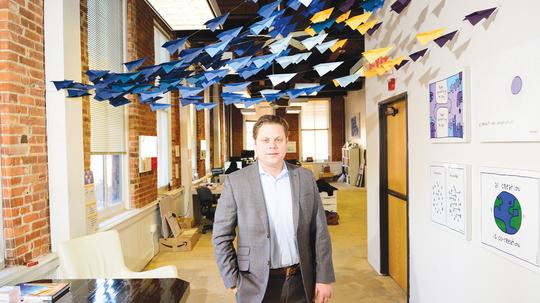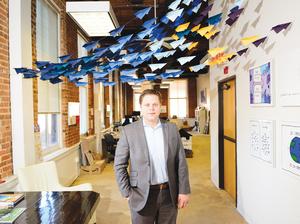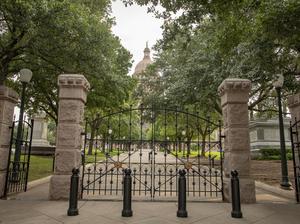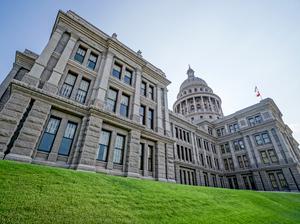
After months of work, Dallas Mayor Eric Johnson’s Task Force on Innovation and Entrepreneurship has released the findings of its effort to transform the region into a startup hub.
Co-chaired by Kanarys CEO Mandy Price and The DEC Network co-founder and Chairman Trey Bowles, the task force gathered surveys from the community and input from ecosystem leaders, releasing a 40-page report highlighting areas of improvement, as well as concrete recommendations to help foster the entrepreneurism in the city over the next 10 years.
“With Dallas reporting massive amounts of private wealth, a significant number of corporate headquarters and renowned educational institutions, we have untapped potential to provide entrepreneurs the necessary resources to start, build, grow and exit their businesses,” the report states.
The report begins by identifying area of improvement in the entrepreneurial ecosystem. They include more corporate and city engagement with startups, implementing evidence-based models that have worked in other cities and increasing access to capital.
According to the report, while Dallas has more than 120 investment firms, startup deal activity in the region is 50 percent less than the activity that Austin sees and just 3 percent of what Silicon Valley sees.
“The future of our entrepreneurial ecosystem depends on a multi-faceted, inclusive approach of working together among stakeholders with a shared goal of entrepreneurial support for all entrepreneurs,” the report states.
To address those issues, the task force released a number of recommendations that include tangible milestones – all with a heavy emphasis on gender, racial and geographic equity. The first recommendation is to create city entrepreneurial liaisons by creating an entrepreneur-in-residence and a VC-in-residence positions within City Hall. Another is to create a platform that helps startups find support resources, as well as a platform that offers educational content.
The task force said educational resources were one of the biggest needs identified. In addition to the platform, it recommended the creation of “innovation zones,” which would include physical incubator spaced. In all, the task force proposes launch five incubators, each with different focuses, over the next 10 years. According to Johnson, the city is already in talks to potentially bring one of those incubators to Fair Park.
“The work that will be completed at the innovation zones will be arguably the most impactful startup investment that we see over the next decade,” Bowles said in a statement. “I believe it will result in tens of billions of dollars of economic impact and is a great example of bringing together different stakeholders.”
Its final proposal, aimed at the issue of increasing access to capital, would have the city support a private investment fund with grant money to support everything from seed rounds to exit funding. It hopes that fund, through additional private financial support, would be between $50 million and $100 million.
To oversee its recommended efforts, the task force proposes forming an advisory board to provide oversight in by summer. Members of the board would serve one- to two-year terms.
In order to make its goals a reality, initiatives require funding. In its first year, all of the proposals combined would require about $1.04 million. About $250,000 of that would go towards the team working on the initiatives. Other funding would go towards the creation of the five incubators. At its height in year five, the projects budget would reach more than $1.56 million, later declining as upfront costs of implementation decline.
Mayor Johnson announced the creation of the Task Force on Innovation and Entrepreneurship towards the end of 2020. At the time, Bowles highlighted the initiative as a path to job creation and economic recovery coming out of the pandemic.
“The goal is to derive a pipeline of lasting economic benefit for Dallas through powerful promotion of innovation in all industries, mindful of removing inclusion and diversity barriers which limits our growth,” the report states.
The task force’s 15-person team is made up of local ecosystem leaders, including Bryan Chambers, VP of ventures at Capital Factory; Simon Mak, Executive Director and Professor of Practice at SMU; and Sanjiv Yajnik, president of financial services at Capital One.
The hope is to include the task force’s recommendations in the city’s development plan, which goes before the City Council later this month for a vote.
“Innovation and entrepreneurship are part of our city’s DNA,” Johnson said in a statement. “But to build for the future, we must be intentional about fostering a culture of innovation. That means putting the pieces in place now for entrepreneurs to succeed. "Collectively, we hold the keys to a better tomorrow. By building for the future now, we can create a resilient economy for the 21st century."







